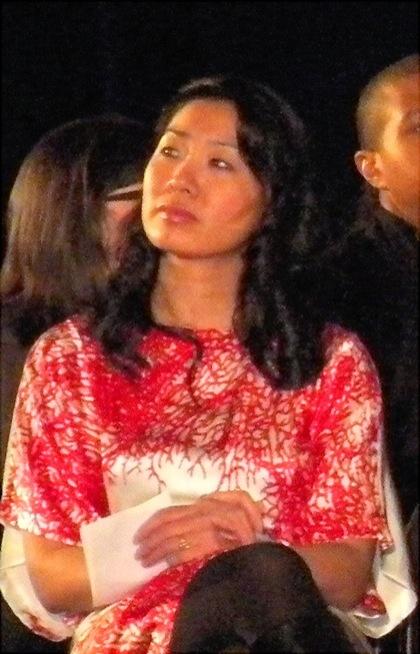Brooklyn’s new poet laureate has a lofty goal.
In a borough whose notable residents include a long list of literati, Tina Chang — who has just assumed the position left vacant by the death of Ken Siegelman — sees the honorary post as “a bridge between the past and the present, and also moving poetry toward the future.”
Chang’s appointment was announced by Borough President Marty Markowitz, during his State of the Borough address, delivered at the Park Slope Armory, Eighth Avenue and 15th Street, earlier this month.
Chang, who has lived in Park Slope since 2000, said she plans to build on the foundation laid by Siegelman, who held the position from 2002 to the time of his death — in particular his work with Brooklyn Poetry Outreach and the borough’s youth, which, she emphasized, is, “What I have been trying to do for so long.”
To that end, she noted, she will be in ongoing communication with Siegelman’s widow, Pearl, to learn, “About his efforts, where he left off, where he wanted it to go. I do want to continue with his legacy.”
Nonetheless, Chang said she is hoping to put her own stamp on the office. In particular, she confided, she would like to launch an interactive website, where poets and poetry-lovers around the borough could find each other, as well as get news of workshops, readings and other events. The website, as envisioned by Chang, would also include a map which browsers could click on to discover “which landmarks are connected to particular poems.”
The author of one book of poetry, Half-Lit Houses, Chang said she sees poetry as accessible to anyone with a love of reading and language,” though she acknowledges that many people are put off by it.
“A lot of people say to me they love writing, love reading, but they have had a hard time penetrating poetry,” Chang recounted. “I’ve always been surprised by statements like that. Maybe, along the way, they have been intimidated by poetry. They may feel that they have to be well-schooled to read poetry, but that’s not really true.”
On the contrary, young children, Chang pointed out, are “Very open to poetry, willing to give interpretation.” The hesitancy that is evinced by many older people, she contended, is “learned somewhere in our education or our adult lives. We learn to shy away from poetry because of the intimidation factor. I’d like to extract that so there will no longer be a barrier between us and words.
“The ultimate role of the Poet Laureate is to make people feel comfortable inside poetry and around poetry,” Chang asserted.
This may involve encouraging those who are uncomfortable with poetry to take a shot at writing it. “A lot of people want to write poetry, but not a lot of people want to read poetry. Everyone wants to express themselves. A lot of people need to find some doorway to walk through in order to enter into poetry,” Chang mused.
For Chang, that long-ago doorway was the public library, where she browsed through books at random. The love of poetry engendered then has carried her along ever since, as she has honed her vision and increasingly redefined her way of looking at the world.
While the poem she read on the night of the State of the Borough address, entitled “Praise,” explores in taut yet moving language the upheaval of the recent Haiti earthquake, Chang herself rejects the idea that she writes “political poetry.
“That term tends to be a box. If you say you write it, all other poetry is off-limits to you,” she explained. Nonetheless, Chang acknowledges, “The idea of social injustice and justice has been running through my recent work, certainly since 2001.”
“Praise” takes the chaos of the earthquake’s aftermath, and finds beauty and anguish in the terror it engendered.
“When shelter is gone, find your solace on the ground,” Change wrote. “And when the ground is gone, lift yourself and walk./ And after all the great monuments of your memory/ have collapsed, with the sky steady above you,/ you shatter that too, with song.”
Chang was one of 22 applicants whose body of work was examined by a search committee appointed by Markowitz. She has also edited a volume of poetry, Language for a New Century: Contemporary Poetry from the Middle East, Asia and Beyond. In addition, she teaches at Hunter College and Sarah Lawrence College. Closer to home, she has collaborated with Park Slope’s M.S. 51 for Poem in Your Pocket Day.























